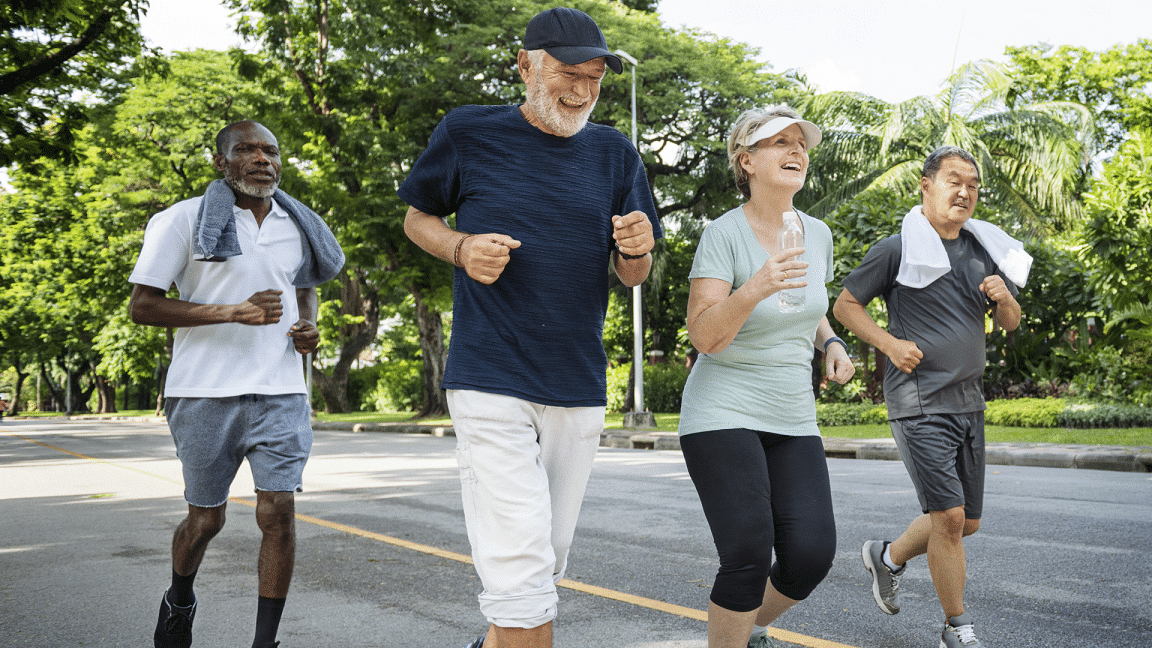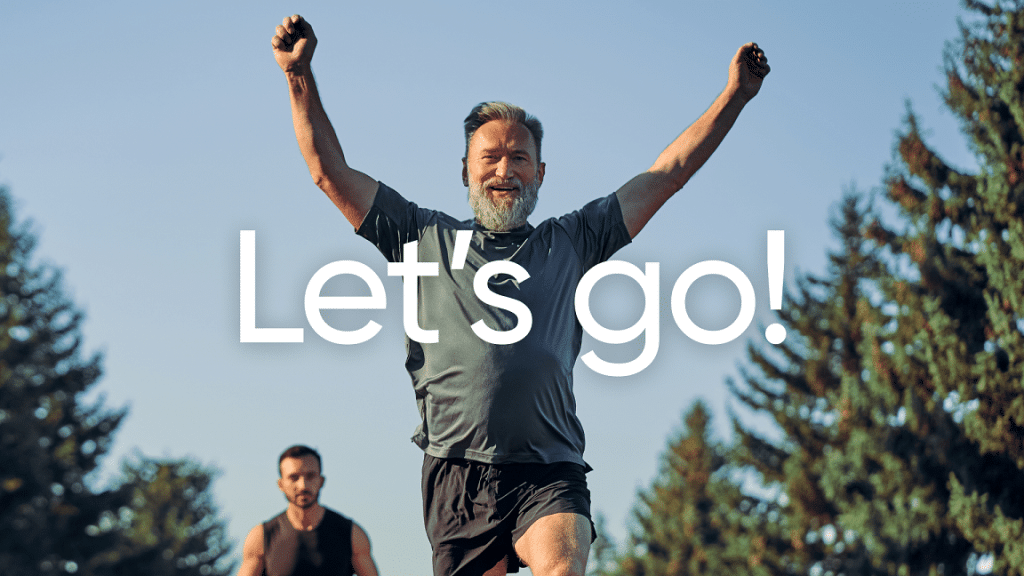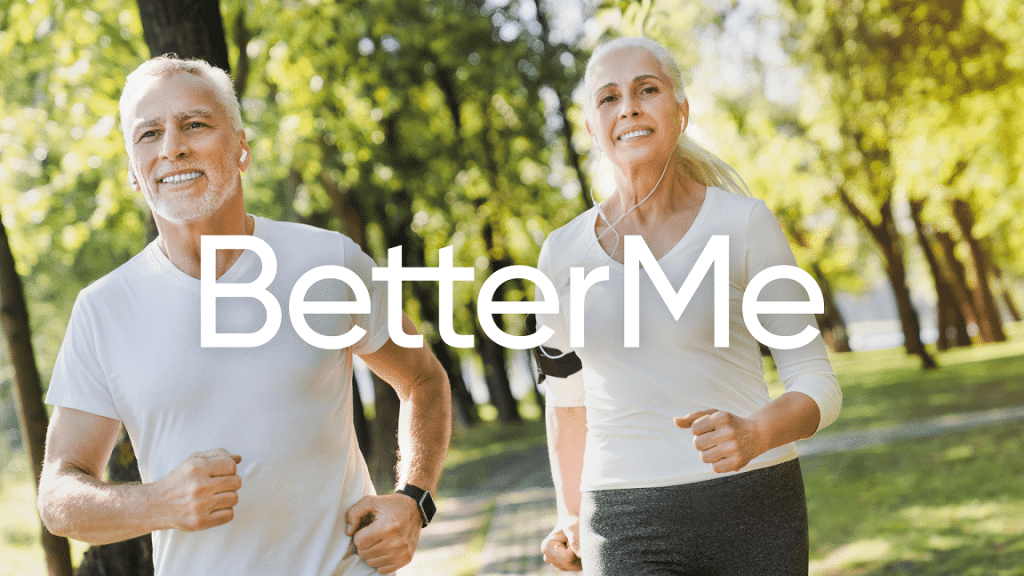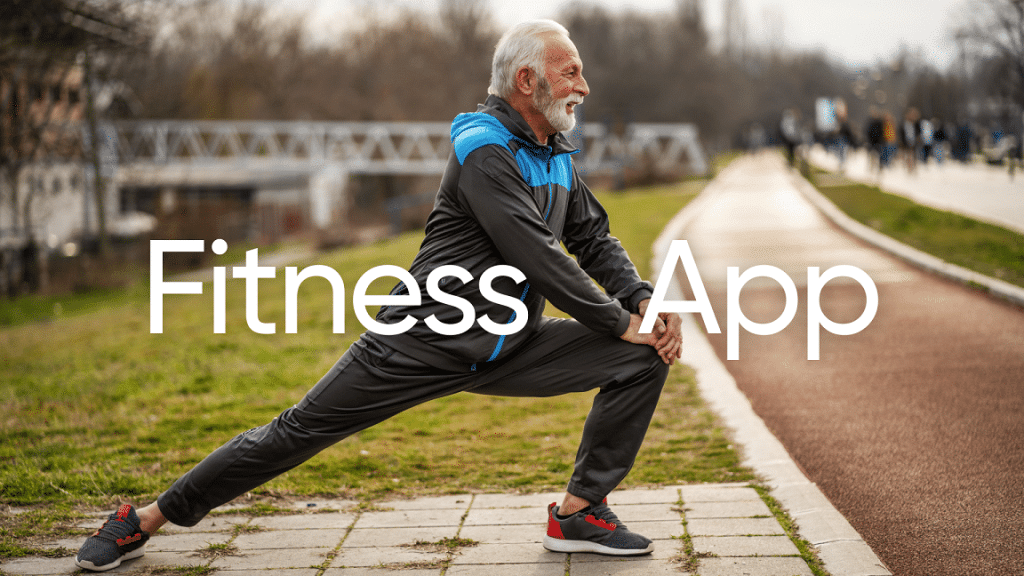There is no age limit for fitness. This means you are never late to start running to stay fit. That said, it is not as straightforward as it sounds. It would help if you researched several things to make your running routine easy to stick to and efficient. Take a look at this guide on how to start running at 50.
Get your personalized
meal plan!
Is Running After 50 Okay?
Let us face it, a 50-year-old body is not the same as a twenty-year-old. You will find that there are things you cannot seamlessly do as you did in your twenties. An assumption is held that you cannot exercise in your fifties because of an increased injury risk.
However, fitness gurus have brushed off this claim and have revealed that exercise is possible at any age. Getting old does not mean cutting out on exercise. Instead, it would help if you stayed active for optimal health benefits. Some of these include:
- To Stop Muscle Mass. We tend to lose muscle mass as we age. When this happens, your body stores more fat, resulting in unwanted weight gain (2). You can stop weight gain resulting from loss of muscle mass by doing muscle-building exercises.
- To Lose Weight. Exercising after 50 can also help you shed some pounds. It increases your metabolic rate and builds skeletal muscle that helps you burn more calories at rest (2).
- To Reduce Disease Risk. Exercising has been linked to reduced disease risk. At 50, you are more prone to diseases and injuries due to losing balance, less physical activity, and weight gain. These factors increase your risk of cardiovascular diseases, falls, obesity, and osteoporosis (2). Exercising helps reduce the risk of such conditions by improving balance and flexibility and promoting weight loss (2).
- To Improve Cardiovascular Fitness. Exercising at 50 can also help by improving your cardiovascular fitness. As a result, your reflexes sharpen, and you can perform various activities with ease (2).
- To Enhance Metabolism. Your metabolism slows down as you age. Consequently, your body burns fewer calories causing you to gain weight (2). You can fight these unwanted pounds by exercising.
- To Increase Overall Health and Quality of Life. Exercising is crucial for a long, healthy, and quality life because it reduces disease risk and helps you keep fit (2).
These are some of the many benefits associated with exercising at 50. Perhaps you are considering running as the physical activity of your choice and are questioning if it is safe. Experts do not find anything wrong with running when in your fifties. On the contrary, people over 50 who run regularly have been associated with the following health benefits (4):
- Reduced risk of diseases like heart disease, diabetes, and some cancers.
- Better weight control.
- An enhanced metabolism.
- Improved levels of HDL “good” cholesterol.
- Reduced inflammation.
- Better bone density and reduced risk of falls and osteoporosis.
- Reduced feelings of depression and anxiety.
- Better endurance and balance.
- Increased quality of life due to reduced chances of getting certain health conditions.
- Better functioning of daily activities.
As seen, running is beneficial for over 50 and overweight individuals. However, experts suggest going for a checkup first to consult with your doctor. Even if you do not have any medical condition that could affect you when training, you still have to get their go-ahead.
Again, you must seek consultation to learn how you can alleviate the risks of running after 50. Yes, you read that right. Running in your fifties is also linked to potential injuries. The most common ones include (4):
- Runner’s Knee. This refers to pain in your knee experienced when your knee cap rubs against your thigh bone.
- Shin Splints. This pain is experienced along the bottom of the front part of your legs. It is caused by inflammation. When you are running, your body muscles burn through glycogen, which is their primary fuel source. Inflammation occurs when you run on glycogen-depleted leg muscles (1).
- Achilles Tendon Tear. If you experience such, you feel pain along the back part of your foot where your heel connects to the calf muscle.
- Stress Fractures. These are minor breaks in your bones.
- Blisters. These may occur when your foot slides or rubs inside your shoe.
- Soft Tissue Injuries. These include injuries like a ligament sprain or a pulled muscle.
Read More: How Much Running To Lose Weight? How To Use Cardio Effectively To Meet Your Fitness Goals
How To Start Running At 50
At surface level, it sounds easy. All you think you have to do is wear some comfortable pair of trainers and hit the road. However, it is not that straightforward. Several factors come into play when you are running at 50.
These factors also play a critical role when designing a running routine, even in your twenties. You cannot start any running program without paying attention to these factors. They include (4):
Consultation
The first thing you need to do is to talk to your doctor. It would help to let them know of any health condition you have that you suspect can affect your training program. For example, let them know if you have bad or weak knees, arthritis, or osteoporosis.
If need be, they may conduct an assessment to verify the extent of these conditions. After that, they will let you know if it is safe to try a running routine (4). Do not feel bad if they do not give you the green light.
However, if these professionals give you the green light, feel free to proceed to the next step. The next step is consulting with a fitness instructor.
They will assess your fitness levels and ask you about your exercise goals. Keep in mind that they have to be realistic. For example, if it is weight loss, stick to a healthy weight loss limit of one to two pounds weekly instead of ten or twenty pounds.
Determining Your Ability
After chatting with your instructor, they will put you to the test to determine your ability. Now, although physically you may have aged, mentally, you may think you are in your twenties. So, you may think you can handle any routine.
This is one of the major mistakes made by most people in their fifties trying to exercise. They often tend to bite more than they can chew, believing they are as strong as they were in their twenties.
Unfortunately, things may have changed for some. Do not be mad or discouraged if you cannot run two miles, yet in your twenties, you would cover even five miles a day. Instead, be patient with yourself and focus on walking yourself up the ladder (4).
Similarly, please do not push your body beyond what it can comfortably handle because this becomes a source of injuries.
Even so, you need to be patient with yourself and your abilities and stay dedicated to the long-term goal of building stamina and endurance. Your trainer will work with numbers based on the assessment.
They will take your pulse before and after running a mile, the time, and the speed. Then, as you progress with your running routine, your trainer will still observe you and jot down these figures. These numbers tell you how far you have come (4).
If you’ve mustered up the courage to crush your weight loss goal, let Betterme take the sting out of this demanding process. Our app will help you restructure your habits, remold your life and crank up your fitness results!
Getting Mentally Ready
Although most people worry about their leg muscles, their psychology is perhaps the most important aspect they need to worry about. Your psychology of choice explains your everyday decisions, and although you may not know it, it also influences most of your choices.
Unfortunately, the majority of the individuals, regardless of their years, prepare physically but forget to get mentally ready. As a result you find such individuals giving up because, believe it or not, running is also mentally draining.
It would help if you reflected on success, get your body primed, and tapped into positive thinking to stick to your running routine. You can also visualize the result, which is the attainment of your goal, to help with mental training.
Knowing Your Stride
You might have realized that we all have different ways we strike the ground. For example, some people strike it using their feet while others strike using their toes. The same concept applies when they are running outdoors or on a treadmill.
Neither method is wrong. The only thing that matters is your comfort. Again, do not force a stride when running because you saw athletes or marathoners using that technique. As mentioned earlier, neither method is wrong, so stop trying to fix or correct it.
Picking The Right Attire
When most people start any exercise program, they are drawn into buying new workout gear. Most opt to go with popular or catchy sports brands, perhaps hoping to channel their inner athlete.
For most people, this comes at the cost of their comfort. Just because famous fitness gurus are rocking a specific sports brand does not mean that you too have to get it. Instead, stick to comfortable gear that will not affect your performance.
Identifying your training shoes is explicitly crucial. They could be the make it or break it factor in your running routine. Take your time and try our several pairs. Always opt for the one you feel comfortable running in (4). Similarly, opt for loose yet breathable material to help keep you comfortable when running.
Eating Before You Run
Some people forget while others choose to exercise on an empty stomach. Experts do not stand for this and suggest you have a pre-workout snack an hour or so before you start running. They believe that the right foods before and after running can help boost your results (4).
Additionally, pre-workout meals or snacks provide you with the energy to power you through your running routine. Below are some essential aspects you need to know about eating before and after running (4):
- You should eat one or three hours before you run to avoid tummy troubles due to indigestion.
- It would help if you ate an hour after running to help your body refuel and rebuild muscle tissue.
- Your pre-workout snacks should be high in carbs to give your body muscles enough energy to stick through the routine.
- You should not eat foods with high fiber content. Although they are very beneficial in your diet, they are not appropriate before exercising because they are hard to digest. So, you may be very uncomfortable when running.
- You should avoid foods high in fat because they result in cramping.
- You should drink just enough water before the race and not excessive as it may slosh around your stomach, making it uncomfortable to run.
Some of the best pre-workout snacks to have are bananas, peanut butter and jelly, a low-fat latte and an apple, a fruit and yogurt smoothie, oatmeal with low-fat milk and fruit like berries (3). After your running routine, you can have egg and whole-wheat toast, whole-grain turkey wrap, chocolate milk, or Greek yogurt and fruit (3).
Read More: Running 3 Miles A Day: Benefits, Risks, And How To Get Started
Alternating Running And Jogging
When starting your running routine, you may have high spirits and the motivation even to sprint. However, as you cover more and more miles, fatigue starts kicking in, and you lose steam. Of course, there is nothing wrong with that, as it is pretty common.
However, many seniors cannot start by running. Instead, they have to walk and increase their pace as they continue. This means you find such people starting brisk walking, after some time they progress to jogging, and ultimately they end up running. There is nothing wrong with either technique.
However, in both techniques, instructors cannot emphasize the need of listening to your body. It will come to a point while running that you are out of breath. At this point, you need to alternate between running and jogging (4).
Jogging for beginners, especially when they are out of breath, can be challenging. Knowing this, experts recommend walking. Walk until you catch your breath. However, do not stop or sit down at any point unless you experience worrying signs and symptoms like dizziness.
Walking or jogging will still burn calories. There is nothing to worry about. Even so, it would help if you did not increase the time you spend walking. Each week, try to reduce the walking or jogging timelines and increase your time running (4).
The Bottom Line
Most people above 50 years fear running, for it is believed that they are at high risk of injuries. However, experts reveal that everyone, regardless of age, is at high risk of injuries when running if they do not consider several things. These include their fitness level, gear, intensity, terrain, health condition, and physical and mental state. All these have been comprehensively discussed in this informative guide on how to start running at 50.
DISCLAIMER:
This article is intended for general informational purposes only and does not address individual circumstances. It is not a substitute for professional advice or help and should not be relied on for decision-making. Any action you take upon the information presented in this article is strictly at your own risk and responsibility!
SOURCES:
- Acute and Chronic Effects of Endurance Running on Inflammatory Markers: A Systematic Review (2017, ncbi.nlm.nih.gov)
- Stay fit at any age (2016, mayoclinic.org)
- What to Eat Before and After a Workout (2021, webmd.com)
- What to Know About Running After Fifty (2020, webmd.com)















